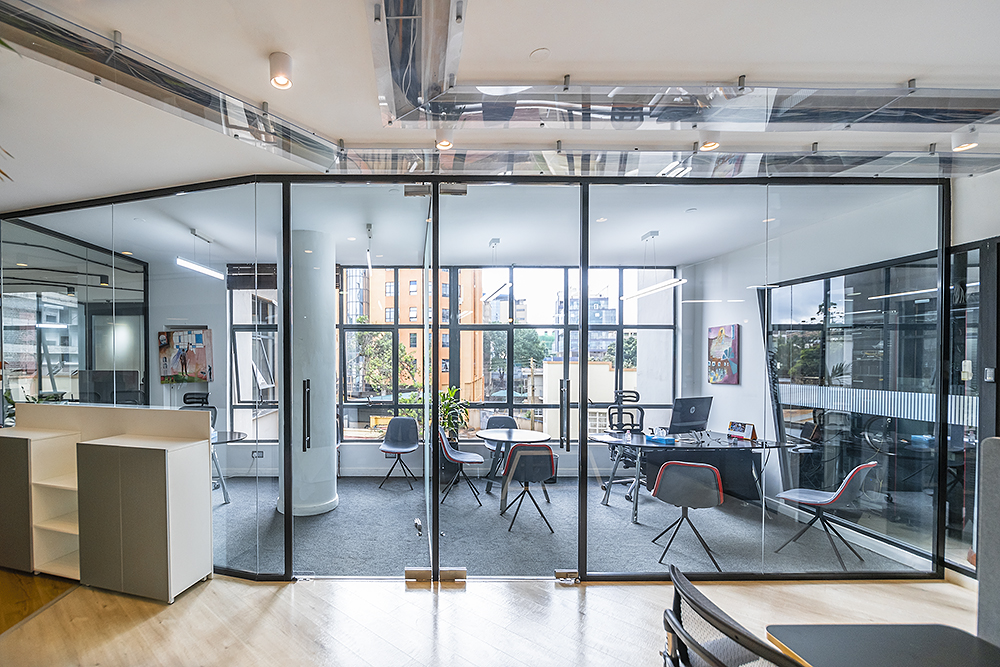August 18, 2023
Sculpting with Light: The Versatility of Architectural Processed Glass
Architectural processed glass has revolutionized the way we perceive and interact with designed structures. As a material that effortlessly blends functionality with artistic expression, it has become an essential element in contemporary architectural design. One particular facet of its allure lies in its ability to sculpt light, transforming spaces into ethereal realms where luminosity dances and creates captivating visual experiences.
What Are the Key Benefits of Using Architectural Processed Glass in Construction Projects?
Architectural processed glass offers a multitude of benefits that make it an increasingly popular choice in construction projects.
One of its primary advantages is its ability to enhance natural light diffusion within buildings. By incorporating processed glass into facades, windows, and skylights, architects can create spaces that are flooded with natural daylight, reducing the reliance on artificial lighting and creating a more sustainable and energy-efficient environment.
Additionally, architectural processed glass offers remarkable versatility in terms of aesthetics. With advancements in glass technology, it is now possible to achieve a wide range of finishes, textures, and colors, allowing architects and designers to bring their creative visions to life. Whether it’s a sleek and minimalist design or a bold and expressive statement, processed glass can be customized to suit any architectural style, offering endless possibilities for artistic expression.
What Role Does Architectural Processed Glass Play in Creating Energy-Efficient Buildings?
Architectural processed glass plays a pivotal role in the creation of energy-efficient buildings by optimizing the balance between natural light, thermal insulation, and heat gain/loss:
- One of the key factors contributing to energy efficiency is the ability of processed glass to maximize daylighting. By allowing ample natural light to penetrate the building, there is a reduced reliance on artificial lighting, resulting in lower energy consumption and cost savings.
- Moreover, architecturally processed glass incorporates advanced glazing technologies that enhance thermal insulation. Double or triple glazing systems, low-emissivity coatings, and insulated glass units help to reduce heat transfer between the interior and exterior, improving energy efficiency and maintaining a comfortable temperature within the building.
- Another crucial aspect is the role of processed glass in minimizing heat gain and loss. Solar control coatings and shading techniques applied to architectural glass can effectively regulate the amount of solar radiation entering the building, preventing excessive heat buildup during hot climates.

What Are the Advantages of Using Impala Glass for Architectural Processed Glass Solutions?
Impala Glass is a leading provider of architectural processed glass solutions in Kenya, offering a range of advantages that make it a preferred choice for architectural projects.
One of the key benefits of using Impala Glass lies in their extensive experience and expertise in the field of architectural processed glass. With a strong reputation for quality and innovation, Impala Glass has been serving the architectural industry in Kenya for several years, providing tailored solutions that meet the specific needs and design requirements of its clients.
Impala Glass offers a diverse range of architectural processed glass products, including tempered glass, laminated glass, insulated glass units, and decorative glass. This wide selection allows architects and designers in Kenya to explore creative possibilities while ensuring the highest standards of safety, functionality, and aesthetics. Whether it’s for exterior facades, interior partitions, balustrades, or decorative elements, Impala Glass provides reliable and customizable solutions to suit any architectural project.
FAQs:
- How is architectural processed glass different from standard glass?
Architectural processed glass differs from standard glass due to its specialized treatments and manufacturing processes, which enhance its properties such as strength, safety, thermal insulation, light diffusion, and aesthetic customization.
- Where can I purchase architectural processed glass in Kenya?
Impala Glass is a reputable provider of architectural processed glass in Kenya. They offer a diverse range of customizable glass solutions to meet the specific requirements of your architectural projects.
Conclusion:
Architectural processed glass is a remarkable material that has transformed the way we approach architectural design. Its ability to sculpt light, enhance natural light diffusion, contribute to energy efficiency, and offer aesthetic versatility makes it an invaluable choice for construction projects. Impala Glass, as a leading provider in Kenya, stands out for its expertise, extensive product range, and commitment to sustainability, making it a preferred partner for architectural processed glass solutions.

